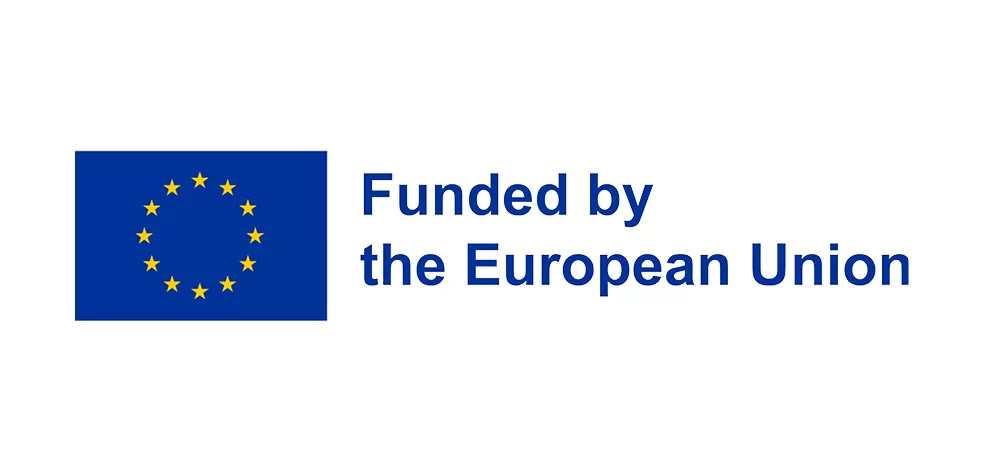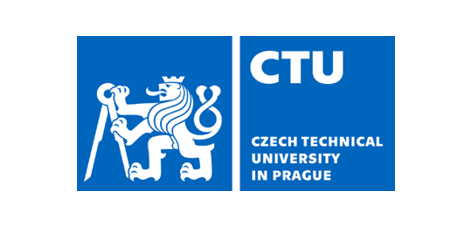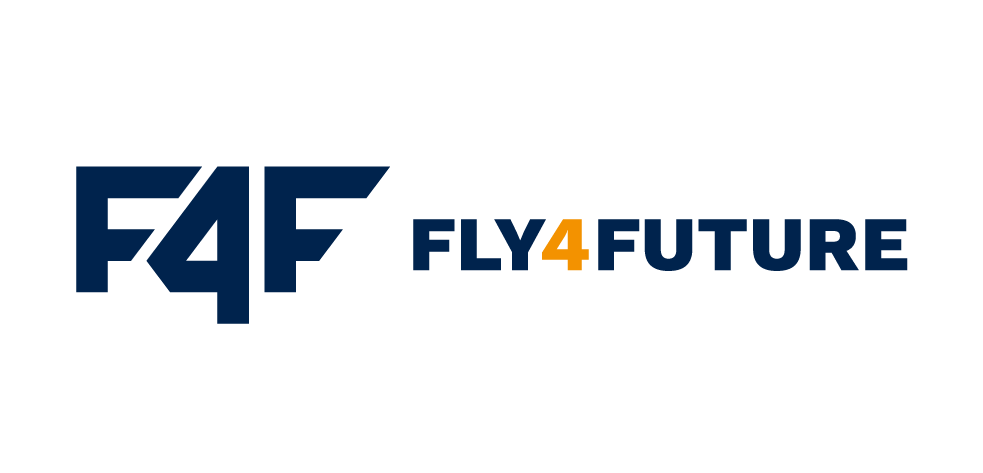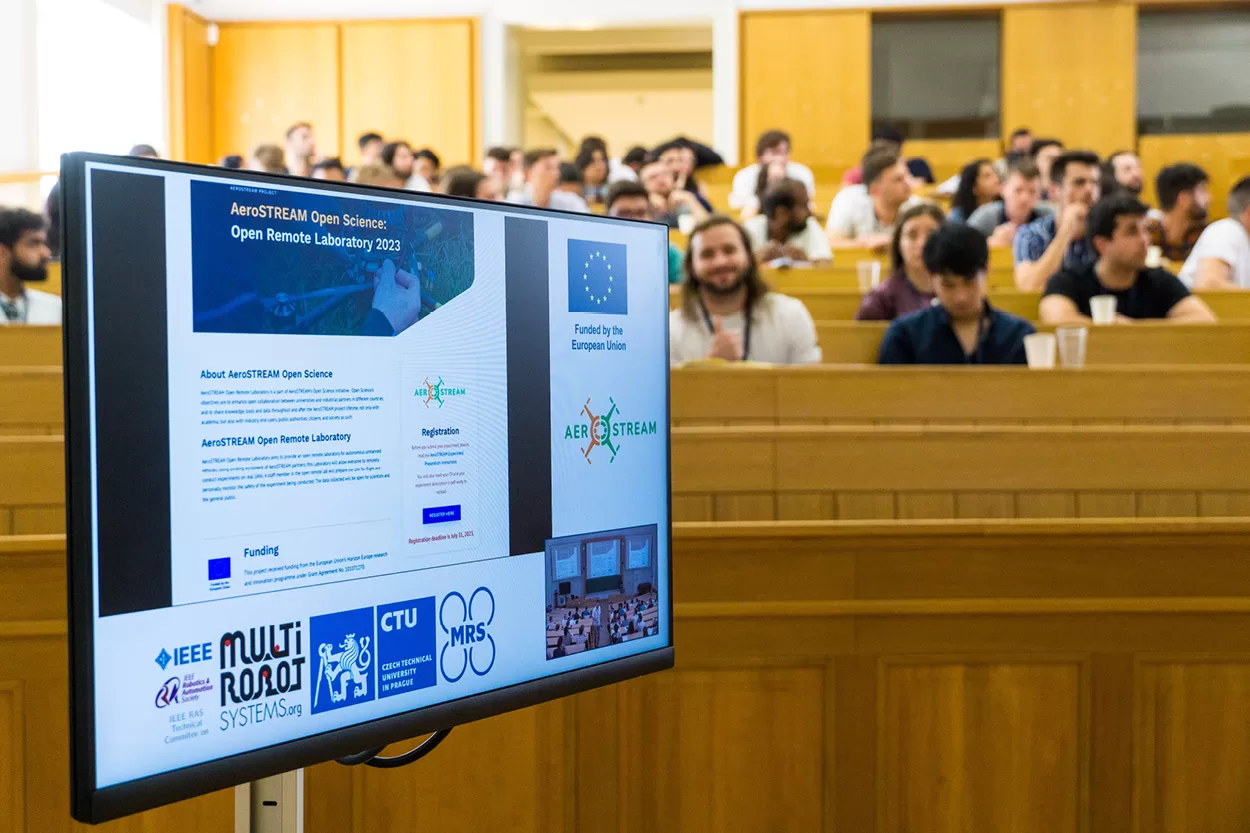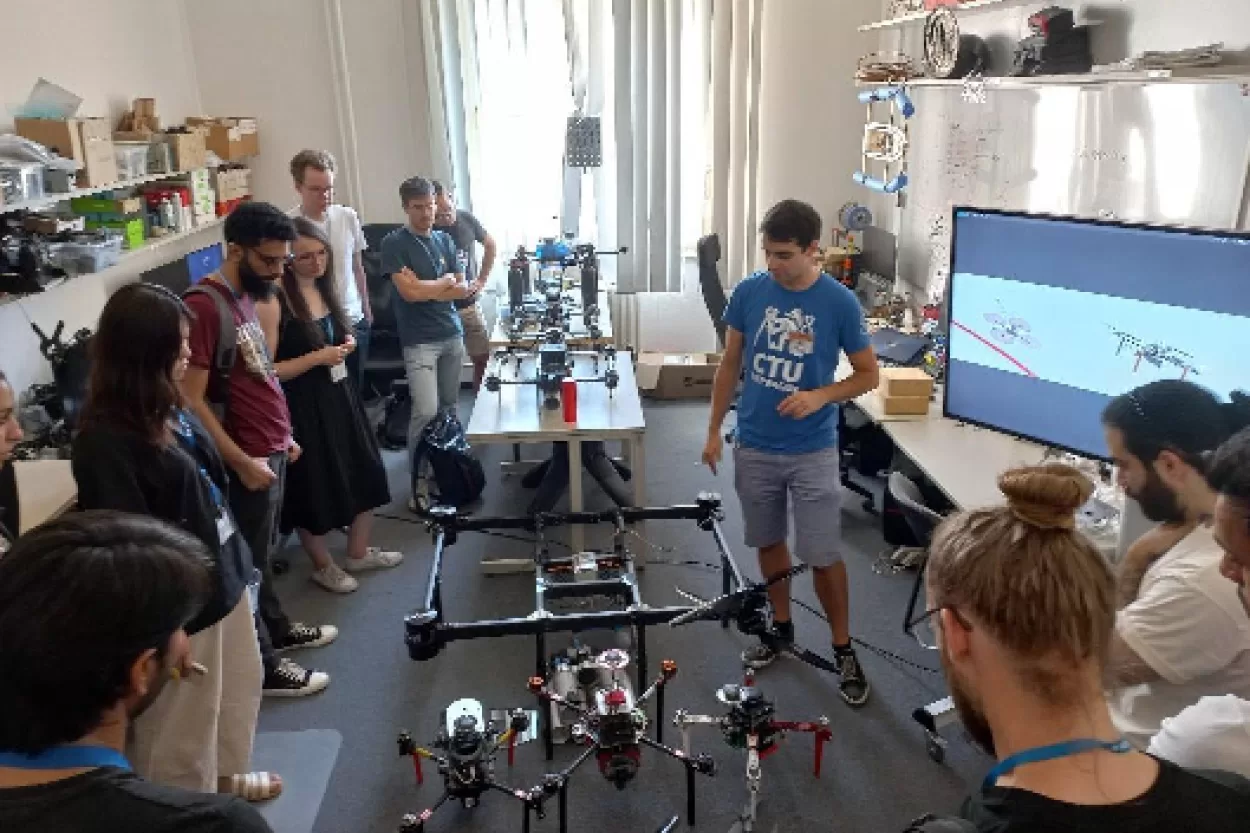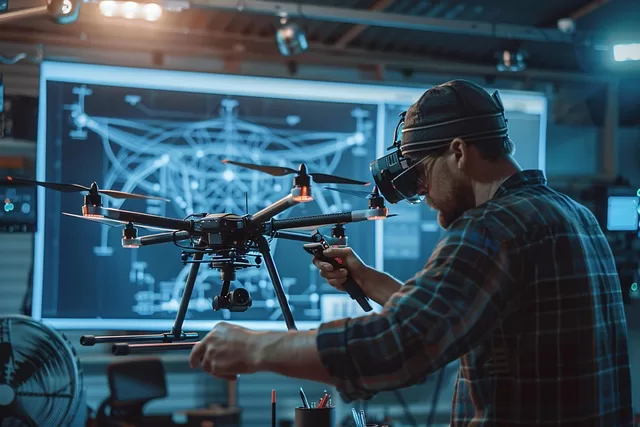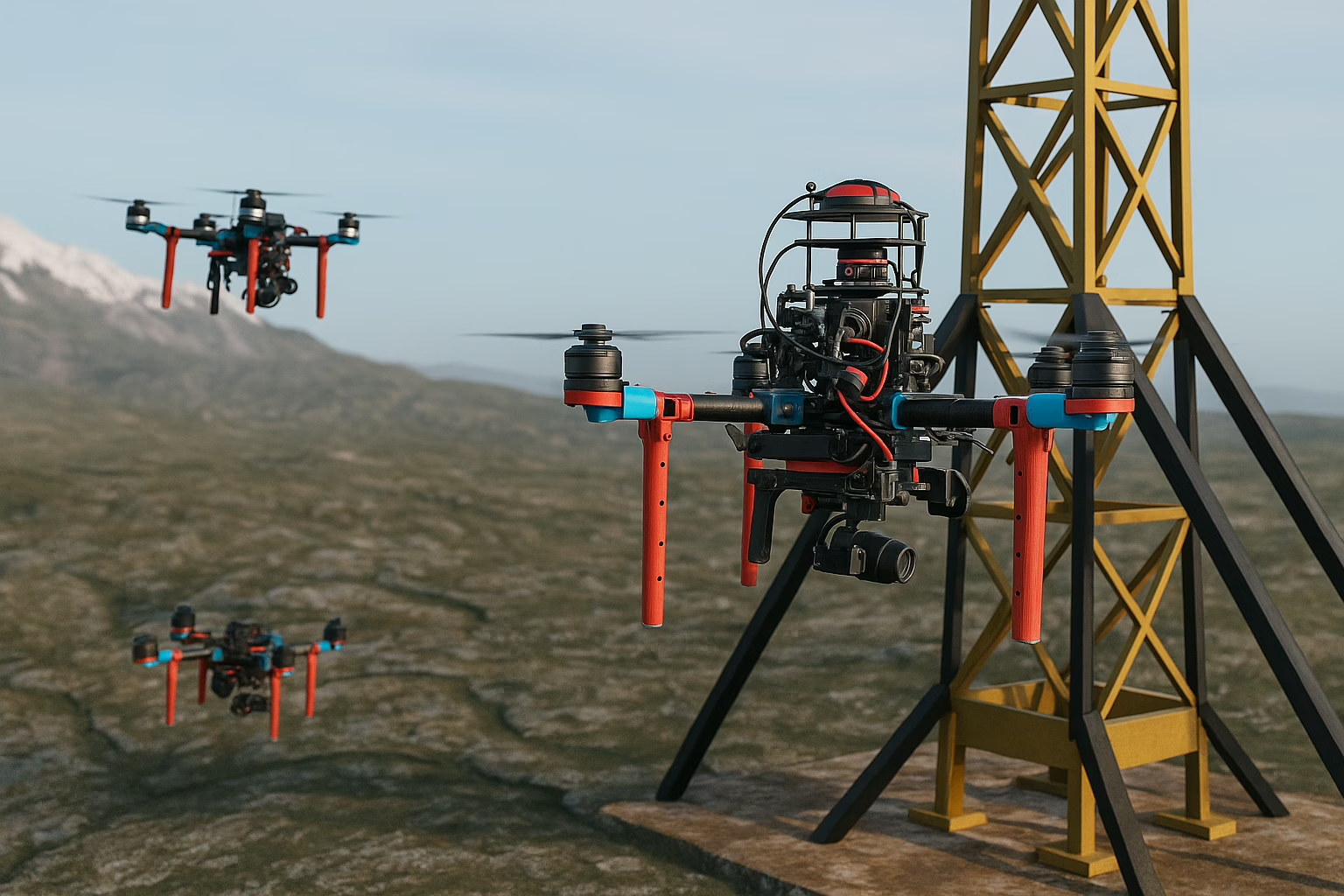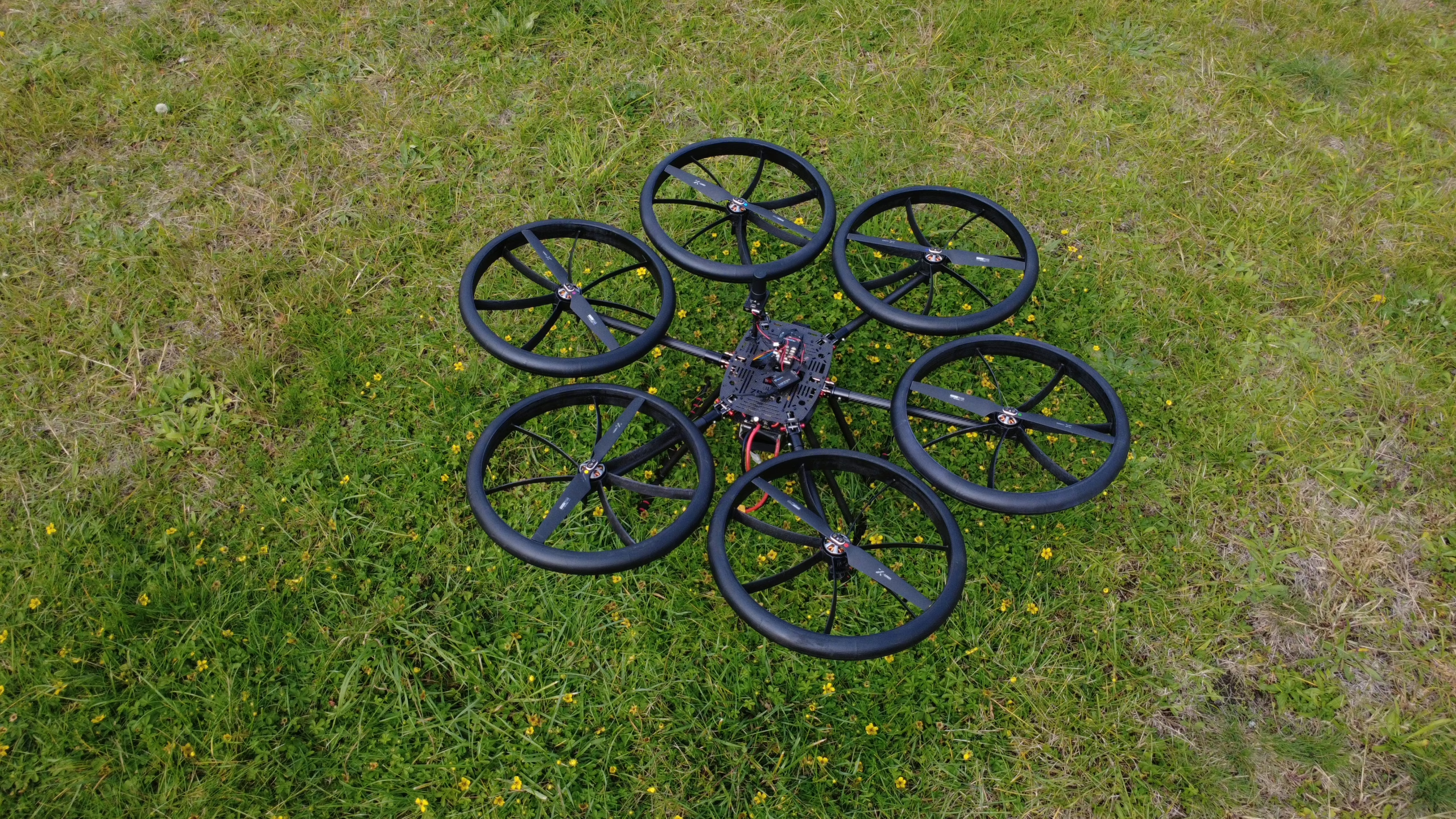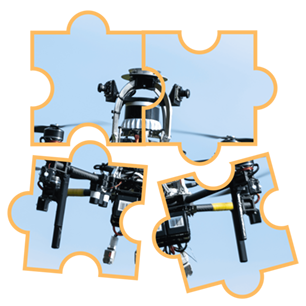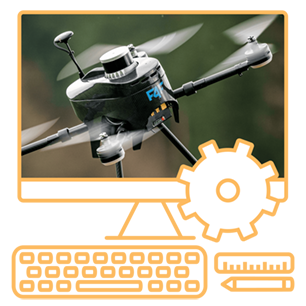AeroSTREAM Project
AeroSTREAM Summer School 2024
July 29 – August 1, 2024, Prague, Czech Republic
Registration is closed now.
About
AeroSTREAM Summer School 2024
AeroSTREAM Summer School 2024 will be held on July 29 – August 1, 2024. As in the past years it will take place at the campus of Czech Technical University, located at the heart of the beautiful and historic city of Prague. The AeroSTREAM Summer School 2024 will promote the newest achievements in Multi-Robot Systems research to students and academic researchers through lectures by well-recognized experts in the field.
In detail
Practical Information
Venue
AeroSTREAM Summer School 2024 will take place at the campus of Czech Technical University in Prague located at Karlovo Náměstí 13, 120 00 Prague 2, building E.
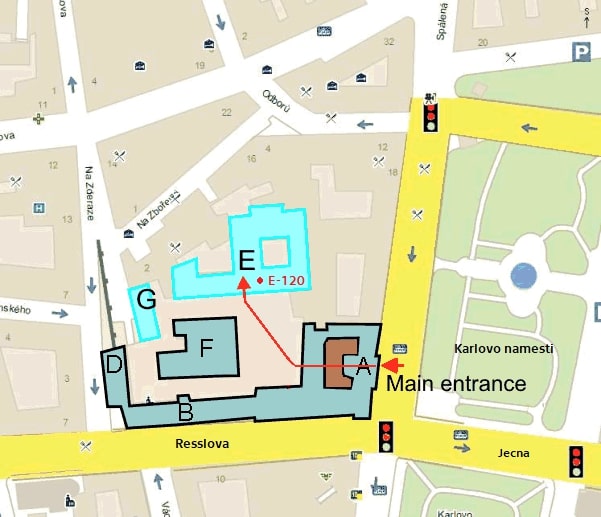
Program
*Please note that this program is subject to change.
- 08:00-08:45 – Registration (for later coming possible during the day)
- 09:00-10:00 – Martin Saska – welcome and organizational details, MRS group introduction
- 10:00-10:30 – Coffee Break
- 10:30-12:00 – Martin Saska – Research of groups of aerial robots at CTU in Prague
- 12:00-12:45 – Lunch
- 12:45-13:30 – Networking
- 13:30-15:00 – Tomáš Báča – Introduction into MRS system in ROS
- 15:00-16:30 – Sebastian Scherer – Multi-Modal and Multi-Robot Coordination in Challenging Environments
- 16:30-19:00 – Coffee Break/Networking
- 19:00-21:00 – Social program: Welcome party
- 08:45-09:00 – Registration (for later coming)
- 09:00-10:15 – Shreekant Thakkar – Building E2E Security, Resilience and Safety in Autonomous and Autonomic Systems by using Generative AI (Part I)
- 10:15-10:45 – Coffee Break
- 10:45-12:00 – Shreekant Thakkar – Building E2E Security, Resilience and Safety in Autonomous and Autonomic Systems by using Generative AI (Part II)
- 12:00-12:45 – Lunch
- 12:45-15:00 – Networking/Free time
- 15:00-16:30 – Andrew Davison – A Robot Web for Many-Device Localisation and Planning
- 16:30-17:00 – Coffee Break
- 17:00-18:00 Student’s poster presentations
- 19:00-21:00 – Guided tour in Prague’s Old Town
- 08:45-09:00 – Registration (for later coming)
- 09:00-10:00 – Stefano V. Albrecht – Multi-Agent Reinforcement Learning (Part I)
- 10:00-10:30 – Coffee Break
- 10:30-11:45 – Stefano V. Albrecht – Multi-Agent Reinforcement Learning (Part II)
- 11:45-12:30 – Lunch
- 12:30-15:45 – Networking/Free time
- 15:45-16:45 – Jan Bednář/Daniel Heřt – Drone Platform Overview
- 16:45-17:15 – Coffee Break
- 17:15-18:15 – Student’s poster presentations
- 20:00-22:00 – Banquet
- :45-09:00 – Registration (for later coming)
- 09:00-9:45 – Alcherio Martinoli – Robots for Gas Sensing: Challenges, Achievements, and Lessons
- 9:45-10:15– Coffee Break
- 10:15-11:45 – Kagan Erunsal– Robots for Gas Sensing: Challenges, Achievements, and Lessons
- 11:45-12:30 – Lunch
- 12:30-14:45 – Networking/Free time
- 14:45-16:15 – Lab Tour
- 16:15-17:45 – Coffee Break/F4F VIP session
- 17:45-18:45 – Student’s oral presentations
Introducing
Lecturers
Learn about the experts who will give lectures and share their knowledge, ideas and experience at the AeroSTREAM Summer School this year.
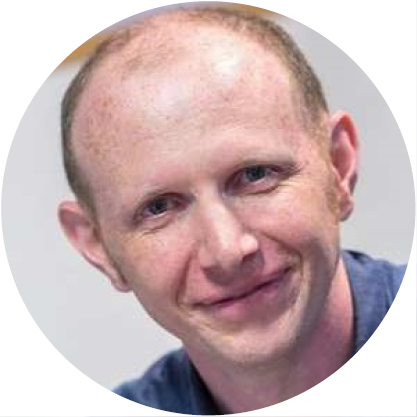
Andrew Davison
Professor of Robot Vision at Imperial College London
Andrew Davison is Professor of Robot Vision at Imperial College London. His long-term research focus is on SLAM and its evolution towards general `Spatial AI’. With his collaborators he has consistently developed breakthrough systems, including MonoSLAM, KinectFusion, SLAM++, CodeSLAM and iMAP. Recent prizes include Best Paper at ECCV 2016 and the Helmholtz Prize at ICCV 2021.
He has also taken this technology into real applications, particularly the Dyson 360 Eye robot vacuum cleaner and as co-founder of SLAMcore. He was elected Fellow of the Royal Academy of Engineering in 2017, and Fellow of the Royal Society in 2023.
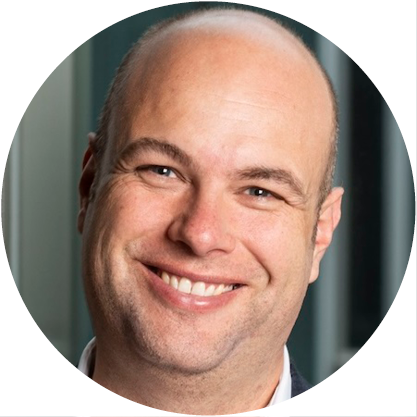
Sebastian Scherer
Research Professor at the Robotics Institute (RI), Carnegie Mellon University
Sebastian Scherer is an Associate Research Professor at the Robotics Institute (RI) at Carnegie Mellon University (CMU). His research focuses on enabling autonomy in challenging environments and previously led CMU’s entry to the SubT challenge. He and his team have shown several firsts for autonomy for flying robots and off-road driving . Dr. Scherer received his B.S. in Computer Science, M.S. and Ph.D. in Robotics from CMU in 2004, 2007, and 2010.
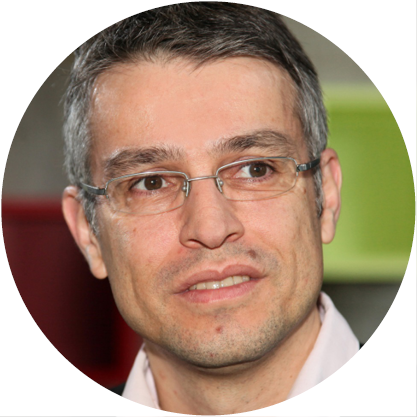
Alcherio Martinoli
Professor at the Distributed Intelligent Systems and Algorithms Laboratory, Swiss Federal Institute of Technology in Lausanne
Alcherio Martinoli has a M.Sc. in Electrical Engineering from the Swiss Federal Institute of Technology in Zurich (ETHZ), and a Ph.D. in Computer Science from the Swiss Federal Institute of Technology in Lausanne (EPFL). He is currently an Associate Professor at EPFL, leading the Distributed Intelligent Systems and Algorithms Laboratory. Before joining EPFL he carried out research activities at the Institute of Biomedical Engineering of the ETHZ, at the Institute of Industrial Automation of the Spanish Research Council in Madrid, Spain, and at the California Institute of Technology, Pasadena, U.S.A. His research interests focus on model-based and data-driven methods to design, control, and optimize physically distributed systems, including multi-robot systems, sensor and actuator networks, and intelligent vehicles. Up to date, he has supervised more than 30 PhD students and co-authored more than 200 peer-reviewed publications.
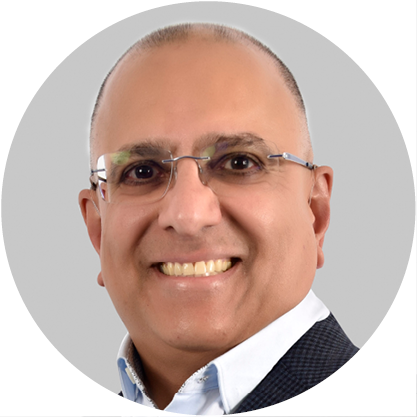
Shreekant Thakkar
Chief Research Officer, Secure Systems Research Centre, TII
Dr Shreekant (Ticky) Thakkar is Chief Research Officer at the Secure Systems Research Centre at the Technology Innovation Institute (TII), a cutting-edge UAE-based scientific research Centre and Adjunct Research Professor at Khalifa University. In this role, he is responsible for carrying out advanced research that is driving end-to-end security and resilience in cyber physical and autonomous systems of systems (swarm of drones). These includes secure technologies in silicon, edge and mobile and cloud platforms working with open-source ecosystems (Dronecode, RISC-V, Linux, Apache, ROS) and research institutions across USA, Europe, and UAE.
Thakkar’s career is punctuated by industry firsts and successes that have strengthened revenue, profit, and competitive advantage for Fortune 500 firms, as well as reach labs, start-ups, and entrepreneurial divisions.
Thakkar is a hands-on leader with an invaluable blend of strategy development and tactical execution; an implementer and dedicated “doer” who delivers corporate vision by building, leading, mentoring, and supporting highly effective, diverse, and collaborative advanced development, engineering/software engineering teams across different geographies.
Before taking on his current role, Thakkar was Chief Scientist and Executive Vice President of Engineering and Technology at the company, now Digital14, a cyber- security leader based in the UAE. In this capacity, he was instrumental in developing an engineering organization of 500 people from a start-up team in four geographical locations, delivering two generations of innovative secure smartphones and applications, and a secure VPN appliance that contributed significantly to the company’s annual revenue.
In prior roles, he served as Chief Solutions Architect at Qualcomm Data Technologies, and as the Chief Technology Officer in the Personal Computing Group and as Vice President and Fellow at HP’s Emerging Computing Lab. Earlier in his career, Ticky Thakkar completed 21 years at INTEL Corporation in roles including INTEL Fellow and Chief Systems Architect – Mobile Systems Technologies.
Thakkar holds a PhD and an MSc, both in Computer Science, from the University of Manchester. He also earned a BSc in Computer Science and Statistics from University College London. He holds 87 patents and has published 33 papers and over 5000 citations in Google Scholar.
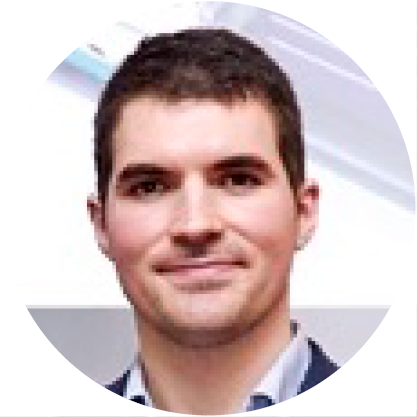
Stefano V. Albrecht
Professor in Artificial Intelligence, School of Informatics, University of Edinburgh
Dr. Stefano V. Albrecht is Reader (Associate Professor) in Artificial Intelligence in the School of Informatics, University of Edinburgh. He leads the Autonomous Agents Research Group (https://agents.inf.ed.ac.uk), which specialises in developing machine learning algorithms for autonomous systems control and decision making.
Dr. Albrecht is a Royal Society Industry Fellow working with Five AI/Bosch to develop AI technologies for autonomous vehicles. He is a Royal Academy of Engineering Industrial Fellow working with KION/Dematic to develop reinforcement learning solutions for multi-robot warehouse systems. His research on reinforcement learning and multi-agent interaction has been published in leading conferences and journals, including NeurIPS, ICML, ICLR, IJCAI, AAAI, UAI, AAMAS, AIJ, JAIR, JMLR, TMLR, ICRA, IROS, T-RO. Previously, Dr. Albrecht was a postdoctoral fellow at the University of Texas at Austin.
He obtained PhD and MSc degrees in Artificial Intelligence from the University of Edinburgh, and a BSc degree in Computer Science from Technical University of Darmstadt. He is co-author of the new MIT Press textbook “Multi-Agent Reinforcement Learning: Foundations and Modern Approaches” (https://www.marl-book.com).

Izzet Kağan Erünsal
Research fellow at Distributed Intelligent Systems and Algorithms Laboratory, Swiss Federal Institute of Technology in Lausanne
Izzet Kağan Erünsal has an M.Sc. in Electrical and Electronic Engineering from Middle East Technical University in Ankara, Turkey and a joint Ph.D. in Robotics, Control, and Intelligent Systems from EPFL and the Instituto Superior Técnico in Lisbon, Portugal. He is currently a postdoctoral research fellow at Distributed Intelligent Systems and Algorithms Laboratory DISAL. His research interests include motion coordination strategies for multi-robot systems, including rotary-winged aerial robots and water-surface vehicles, model predictive control, and relative localization systems.
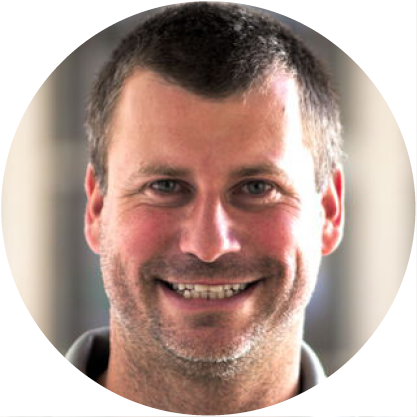
Martin Saska
Head of the Multi-Robot Systems Group, FEE CTU
Martin Saska is the founder and head of Multi-robot Systems lab at Czech Technical University in Prague (https://mrs.felk.cvut.cz/) and a co-founder of The Center for Robotics and Autonomous Systems with more than 70 researchers cooperating in robotics (https://robotics.fel.cvut.cz/cras/).
Martin received his Ph.D. degree at University of Wuerzburg, Germany, within the PhD program of Elite Network of Bavaria, 2009. He was a visiting scholar at University of Illinois at Urbana-Champaign, USA in 2008, and at University of Pennsylvania, USA in 2012, 2014 and 2016, where he worked with Vijay Kumar’s group within GRASP lab.
Martin is an author or co-author of >150 publications in peer-reviewed conferences with multiple best paper awards and more >50 publications in impacted journals, including IJRR, AURO, JFR, ASC, EJC, with >5500 citations indexed by Scholar and H-index 41. His team won multiple robotic challenges in MBZIRC 2017, MBZIRC 2020 and DARPA SubT competitions.
Visit
All AeroSTREAM Summer Schools
Explore
What We Do
Custom Drones
We custom-build ready-to-fly fully autonomous drones that can be adjusted for any application and industry.
Development & Prototyping
We design and develop advanced autonomous aerial systems to meet the particular needs of our individual clients.
Research Projects
We participate in many projects in various fields financed by the EU and Czech Republic, as well as private research institutions.

